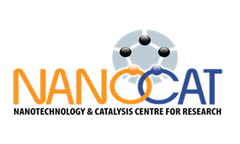Publication Ethics
Publication Ethics & Malpractice Statement
Malaysian NANO-An International Journal Publication Ethics
These guidelines should be followed to ensure high-quality scientific publications, public trust in scientific findings, for which the people are given credit for their ideas. Malaysian NANO-An International Journal (MNIJ) is committed to the following finest practices on the basis of ethical matters, errors, and retractions.
Authorship and Originality
Authorship: Authorship should be limited to those who have made a significant contribution to conception, design, execution or interpretation of the reported study. Others who have made significant contributions must be listed as co-authors. The corresponding author should ensure that all appropriate co-authors and that all co-authors have seen and approved the final version of the paper and have agreed to its submission for publication.
Originality and Plagiarism: Authors must submit only entirely original works, and should appropriately cite or quote the work and/or words of others. Publications that have been influential in determining the nature of the reported work should also be cited. Plagiarism in all its forms constitutes unethical publishing behaviour and is unacceptable.
Multiple Publication and Concurrent Publication: Submitting the same manuscript to more than one journal concurrently, constitutes unethical publishing behaviour and is unacceptable. Manuscripts which have been published as copyrighted material elsewhere cannot be submitted.
Data Integrity and Reproducibility:
Reporting standards: Authors of original research should present an accurate account of the work performed as well as an objective discussion of its significance. Underlying data should be represented accurately in the paper. A paper should contain sufficient detail and references to permit others to judge the validity of the contributions to knowledge. Fraudulent or knowingly inaccurate statements constitute unethical behavior and are unacceptable.
Reproducibility: Authors should provide sufficient details of their methods and procedures to allow others to replicate the study. Raw data should be made available upon request, as appropriate.
Ethical Considerations:
Disclosure and Conflicts of Interest: All authors should disclose any financial or other substantive conflicts of interest in their manuscript that might be construed to influence the results or interpretation of their manuscript. All sources of financial support for the project should be disclosed.
Acknowledgement of Sources: Proper acknowledgment of the work of others must always be given. Authors should cite publications that have been influential in determining the nature of the reported work.
Peer Review Process
Confidentiality: Any manuscripts received for review in the open review process are subjected to the criteria of enhancing their rationality through the mutual rational controls of critical discussion. Referees should express their views clearly with supporting arguments in the spirit of enhancing the quality of the paper through the mutual rational controls of critical discussion.
Contribution to Editorial Decisions: Reviewers assist the editorial board in making editorial decisions and through the editorial communications during the open review process with the author in improving the paper.
Acknowledgement of Sources: Reviewers should identify relevant published work that has not been cited by the authors. References to the ideas of others should be accompanied by the relevant citation. A reviewer should also call to the editor's attention for any substantial similarity or overlap between the manuscript under consideration and any other published paper of which they have personal knowledge.
Disclosure and Conflict of Interest: Information or ideas obtained through peer review must only be used with the explicit agreement of the participants in the peer review. Reviewers should not consider manuscripts in which they have conflicts of interest resulting from competitive, collaborative, or other relationships or connections with any of the authors, companies, or institutions connected to the papers.
Corrections and Retractions
Fundamental errors in published works: When an author or reader discovers a significant error or inaccuracy in the published work, the author should promptly notify the journal editor and work with the editor to retract or correct the paper.
Misconduct Investigations: MNIJ takes allegations of research misconduct seriously. In cases of suspected misconduct, we will follow established guidelines and procedures to investigate and address the issue.
Adherence to these publication ethics is essential to foster trust, integrity, and excellence in scientific research. MNIJ encourages all stakeholders to familiarize themselves with these principles and actively promote ethical practices in the scholarly community.




